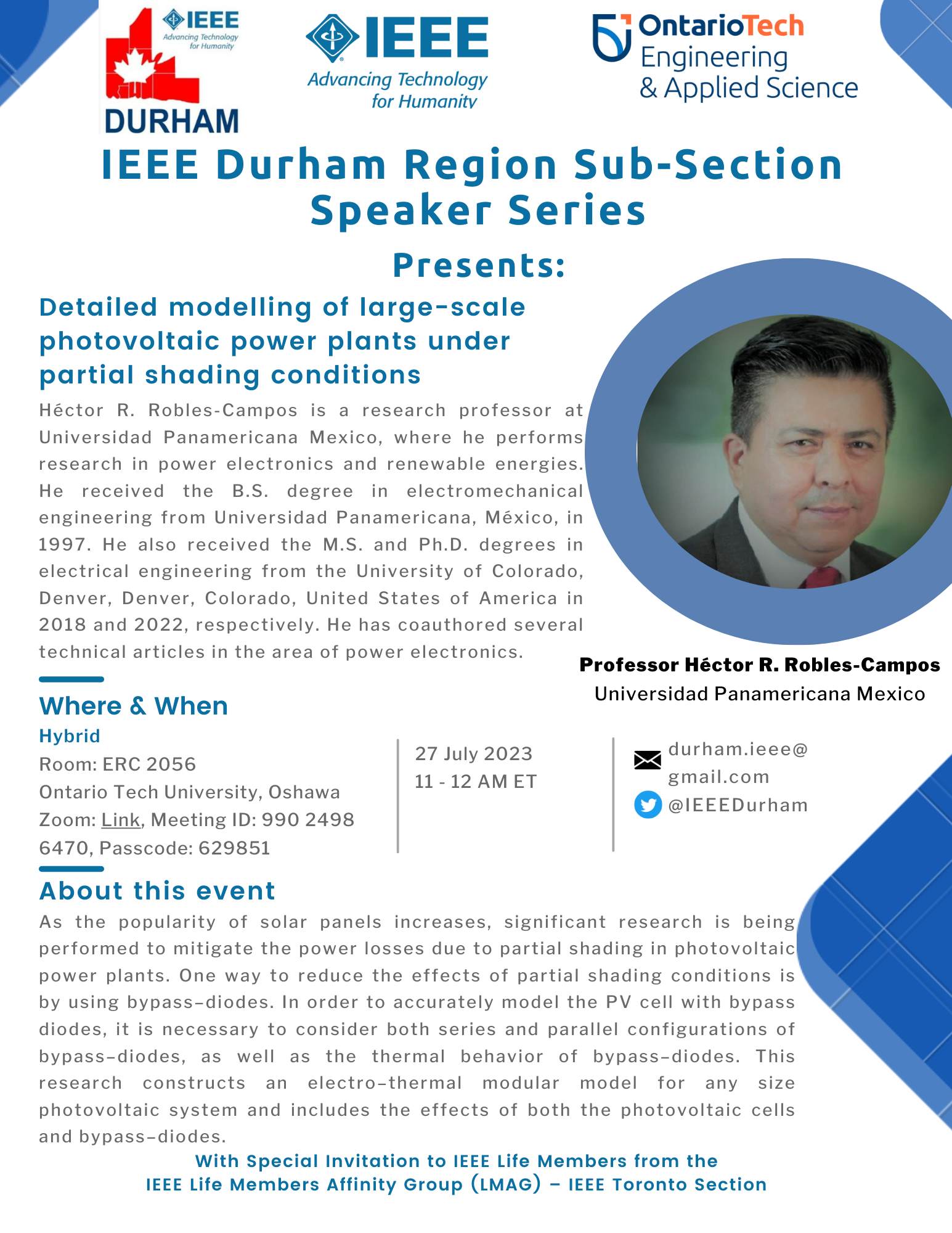Detailed modelling of large-scale photovoltaic power plants under partial shading conditions

As the popularity of solar panels increases, significant research is being performed to mitigate the power losses due to partial shading in photovoltaic power plants. One way to reduce the effects of partial shading conditions is by using bypass–diodes. In order to accurately model the PV cell with bypass diodes, it is necessary to consider both series and parallel configurations of bypass–diodes, as well as the thermal behavior of bypass–diodes. This research constructs an electro–thermal modular model for any size photovoltaic system and includes the effects of both the photovoltaic cells and bypass–diodes.
Date and Time
Location
Hosts
Registration
-
 Add Event to Calendar
Add Event to Calendar
Loading virtual attendance info...
- 2000 Simcoe Street North
- Oshawa, Ontario
- Canada
- Building: Energy Systems and Nuclear Science Research Center
- Room Number: 2056
- Contact Event Host
- _anonimized_20241125_116c3eed-d082-4305-a604-10a9f339a5dc
Speakers
Dr. Hector R. Robles Campos
Detailed modelling of large-scale photovoltaic power plants under partial shading conditions
As the popularity of solar panels increases, significant research is being performed to mitigate the power losses due to partial shading in photovoltaic power plants. One way to reduce the effects of partial shading conditions is by using bypass–diodes. In order to accurately model the PV cell with bypass diodes, it is necessary to consider both series and parallel configurations of bypass–diodes, as well as the thermal behavior of bypass–diodes. This research constructs an electro–thermal modular model for any size photovoltaic system and includes the effects of both the photovoltaic cells and bypass–diodes.
Biography:
Héctor R. Robles-Campos is a research professor at Universidad Panamericana Mexico, where he performs research in power electronics and renewable energies. He received the B.S. degree in electromechanical engineering from Universidad Panamericana, México, in 1997. He also received the M.S. and Ph.D. degrees in electrical engineering from the University of Colorado, Denver, Denver, Colorado, United States of America in 2018 and 2022, respectively. He has coauthored several technical articles in the area of power electronics.

